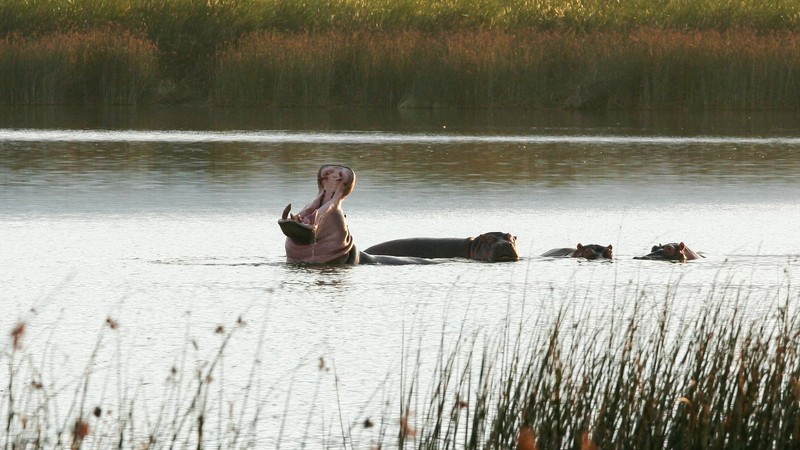The City of Cape Town has said that it is sad about the passing of Brutus, Rondevlei’s first and famous hippo.
Brutus arrived at Rondevlei in November 1981, and was the first hippo to be reintroduced into the Western Cape in 300 years. He passed away last week at the age of 47 years, and was still producing offspring until recently.
Staff from the False Bay Nature Reserve were busy with routine patrols when they discovered the dead hippo bull in the Rondevlei section of the reserve on Thursday morning, 13 November 2025.
The bull was removed from the vlei, and on Friday, 14 November, the Biodiversity Management Branch’s veterinarian conducted an autopsy. It was thereafter established that the dead hippo was Brutus.
The preliminary postmortem examination found no evidence of trauma, injury, or infectious disease. The hippo was in good condition for his age, and the initial findings indicate a natural, age-related cause of death.
Tissue samples have been sent away for further analysis.

Deputy Mayor and Mayco Member for Spatial Planning and Environment, Eddie Andrews, said: “Brutus was the long-standing dominant male that arrived at Rondevlei in November 1981, and we are sad about not having him around anymore.
“After Brutus’s passing, the hippo pod at Rondevlei now consists of five hippos, including one young bull. We will be looking at options to potentially bring in a new male. The hippos play a vital role in maintaining biodiversity in the wetland system and are also important educational and tourism assets,” said Andrews.
The hippos were reintroduced to Rondevlei originally with two males, followed by two females. The animals were reintroduced by the well-known manager at the time, Howard Langley.
Brutus’s offspring have been moved to many reserves in the Western Cape, with one of them being moved to the Plettenberg Bay Game Reserve earlier this year.
The hippos were introduced to control Vleigras, an invasive grass from South America, which was smothering the wetland. The hippos swiftly ate the Vleigras and opened up the reed beds.
Being bulk herbivores, they are capable of eating up to 100kg per day. These days, they feed on indigenous buffalo grass, Vleigras, and kukuyu.
Some Capetonians have shared their fond memories of Brutus:
“RIP, Brutus. Thank you for all the years of being yourself and for the odd hippo grunt in the middle of the night that still gives me a thrill after 18 years of living here,” one person said.
“RIP Brutus!! 47 is a great age, I suppose…. He’s had quite a few fights with his male offspring over the years, too…..perhaps there will be a little peace there now,” another person said.
Another added, “Rest in peace, Brutus. Will never forget how you dominated those waters and chased out anyone who dared get too close. Crazy, scary boat rides will be remembered for generations to come.”
